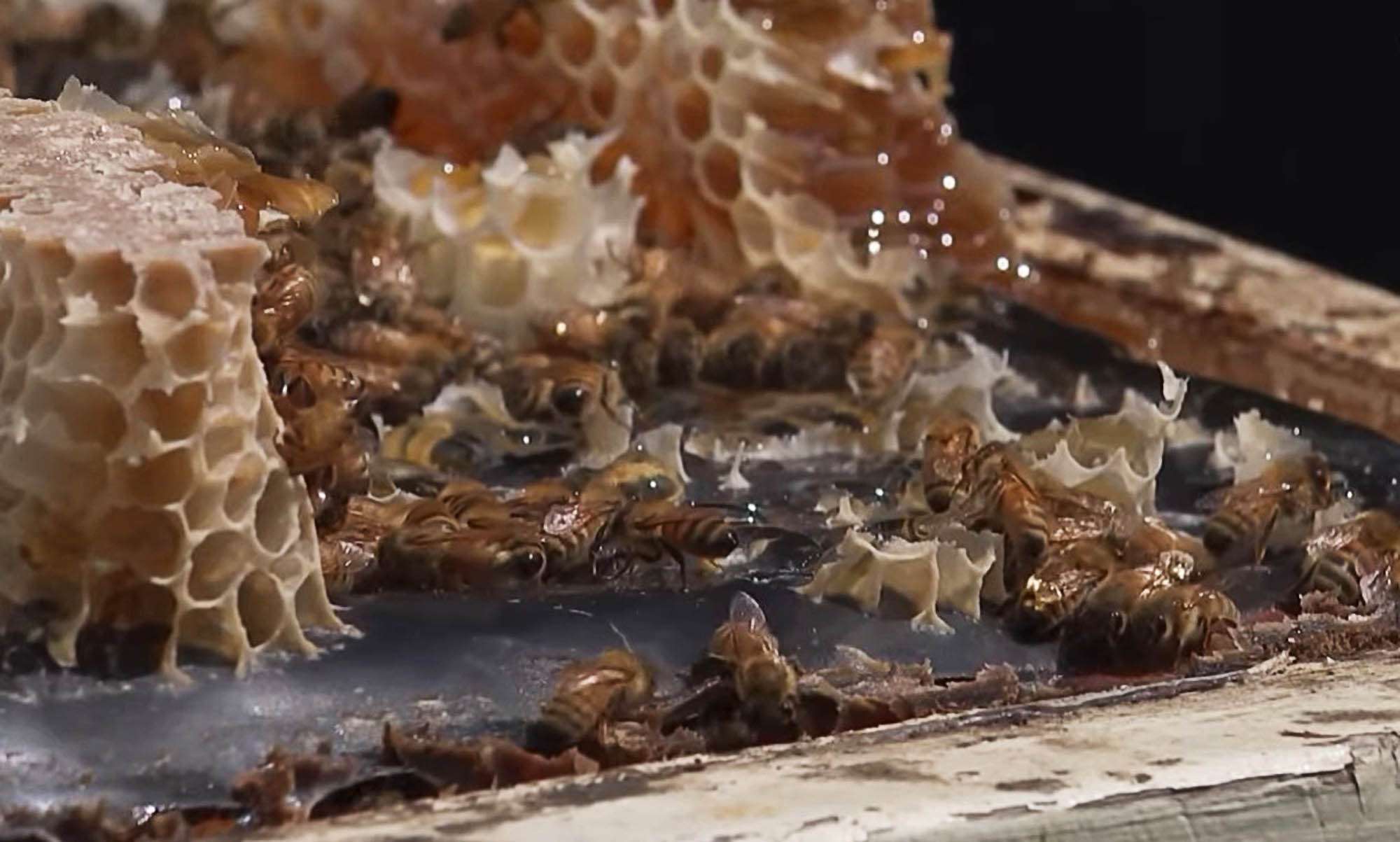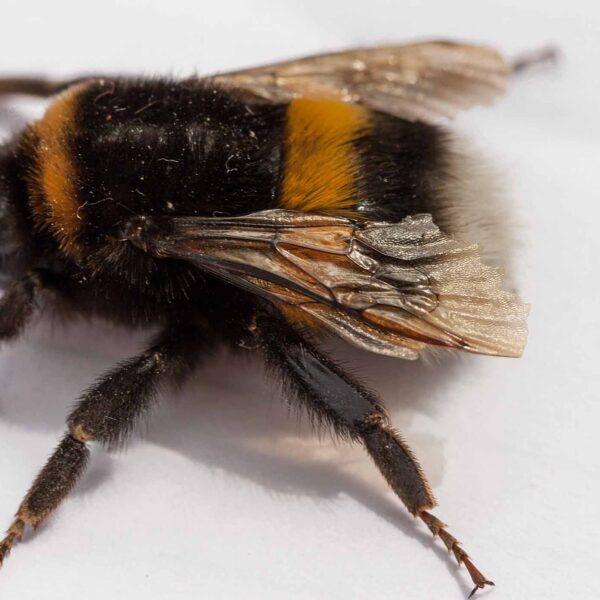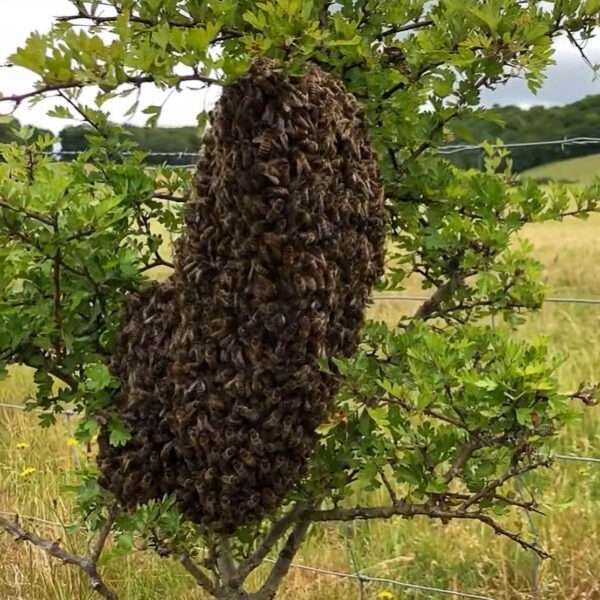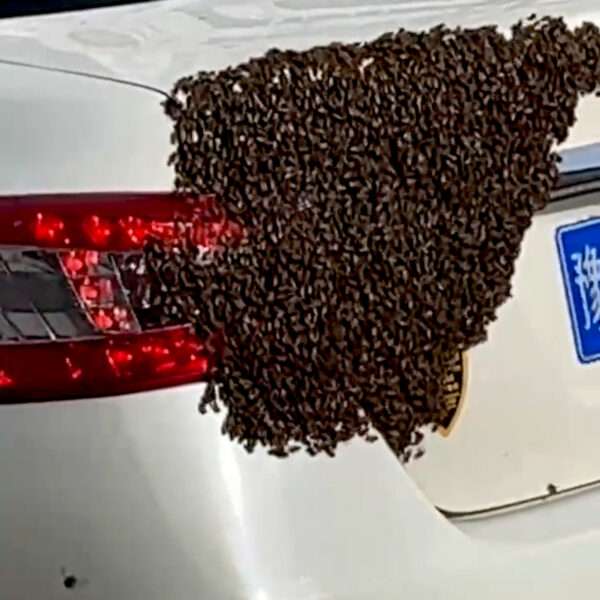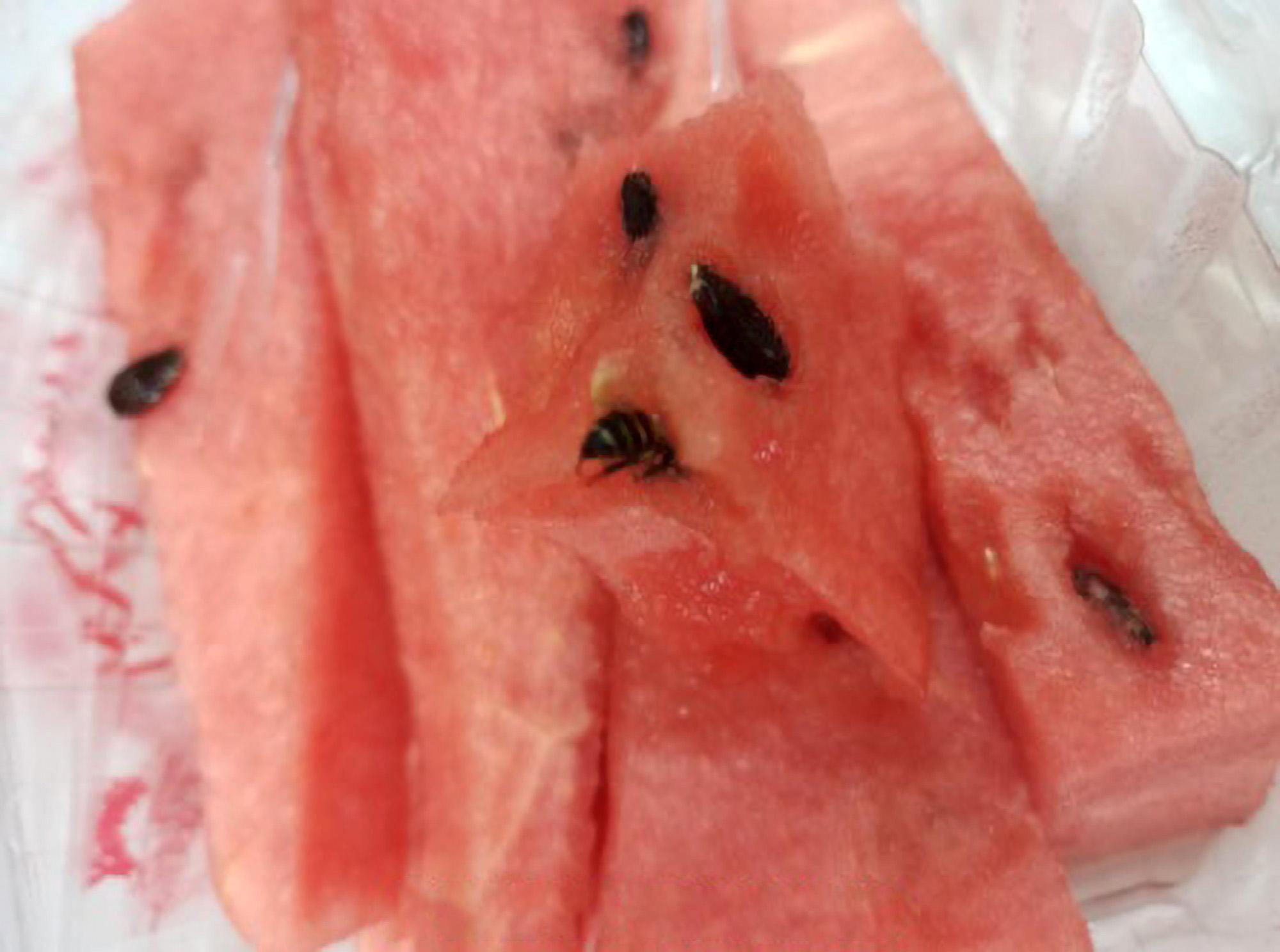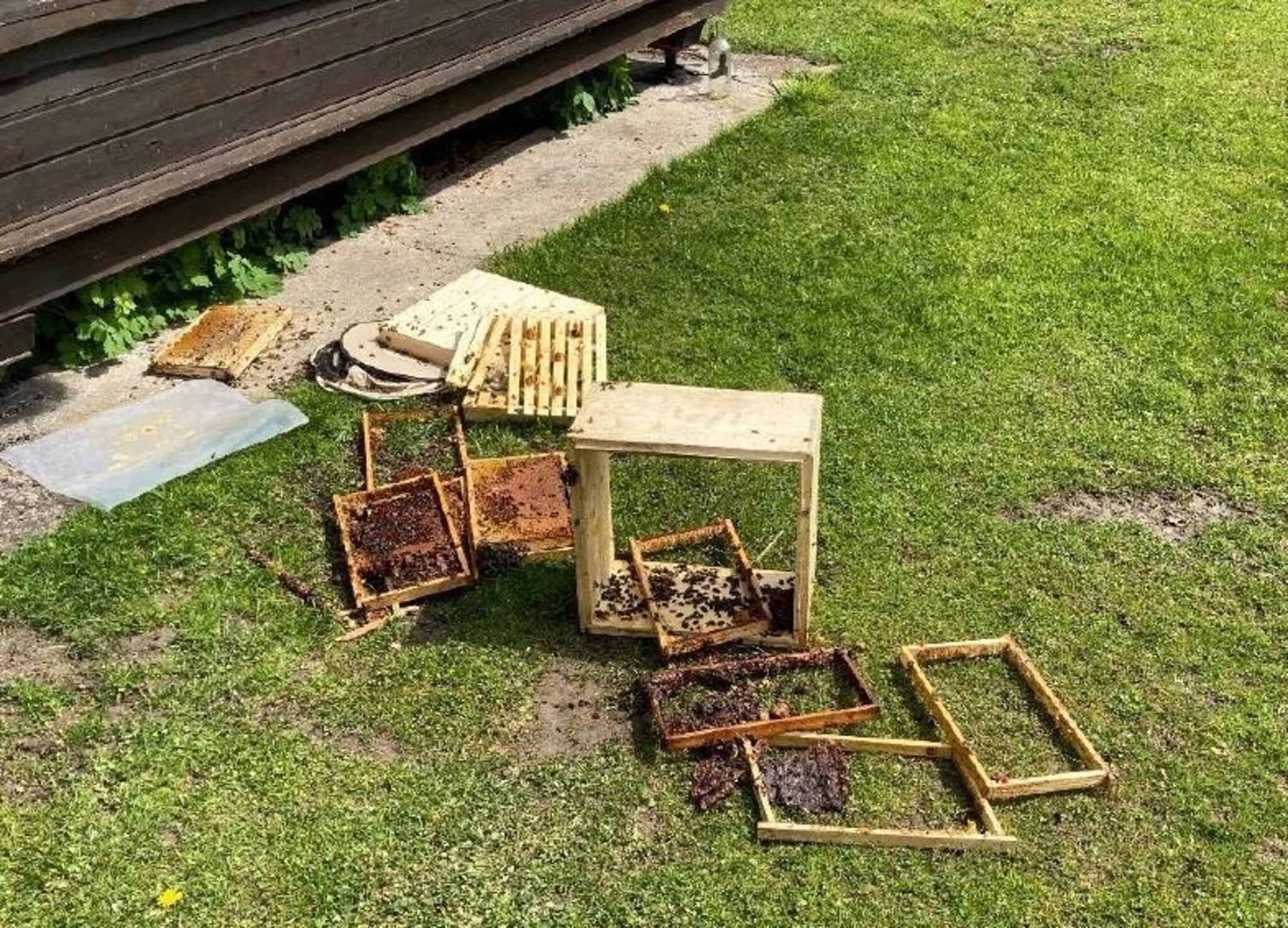Extreme weather conditions pose a major threat to bees, a leading scientist has warned.
Dr Jennie L. Durant – who is a research affiliate in human ecology at the University of California (UC) – underlined that storms, droughts and wildfires are not just affecting humans.
Dr Durant – who is researching bee health issues for more than 10 years – said such extraordinary conditions are also putting honeybees as well as numerous wild bee species at risk.
According to the environmental scientist, some experienced apiarists had lost 50 to 70 per cent of their colonies in the winter of 2021/2022.
Dr Durant said: “In 2021, I began hearing for the first time from beekeepers about how extreme drought and rainfall were affecting bee colony health.
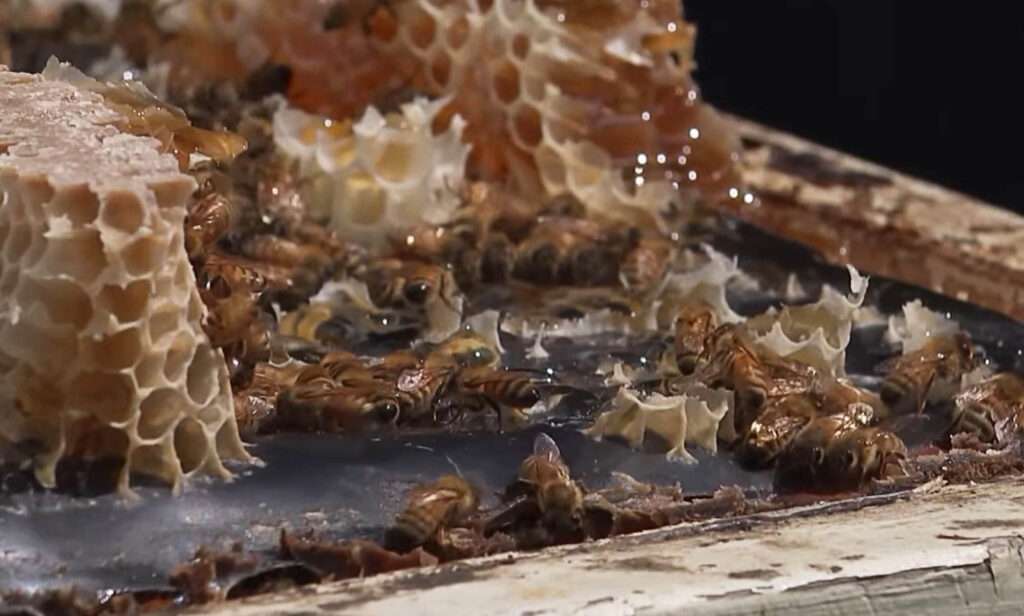
“Drought conditions in the western United States in 2021 dried up bee forage – the floral nectar and pollen that bees need to produce honey and stay healthy. And extreme rain in the Northeast limited the hours that bees could fly for forage.
“In both cases, managed colonies – hives that humans keep for honey production or commercial pollination – were starving. Beekeepers had to feed their bees more supplements of sugar water and pollen than they usually would to keep their colonies alive.”
Dr Durant emphasised the difficult situation of native bees in such extreme weather. She stressed that – unlike honeybee colonies – these species “did not receive supplements to buffer them through harsh conditions.”
Reflecting on her review of data provided by federal pollinator experts through the United States Department of Agriculture (USDA) and the Environmental Protection Agency, Dr Durant said: “One clear takeaway from this year’s meeting was that climate change has become a new and formidable stressor for bees, potentially amplifying previously known issues in ways that scientists can’t yet predict but need to prepare for.”
Dr Durant stressed the economic significance of honeybees and other insects.
She said: “Pollinators contribute an estimated USD 235 billion to USD 577 billion yearly to global agriculture, based on the value of the crops they pollinate.”
In her article on the science news platform The Conversation, Dr Durant concluded: “Understanding and mitigating the impacts of climate change on pollinators is key for supporting healthy ecosystems and sustainable agriculture.”

